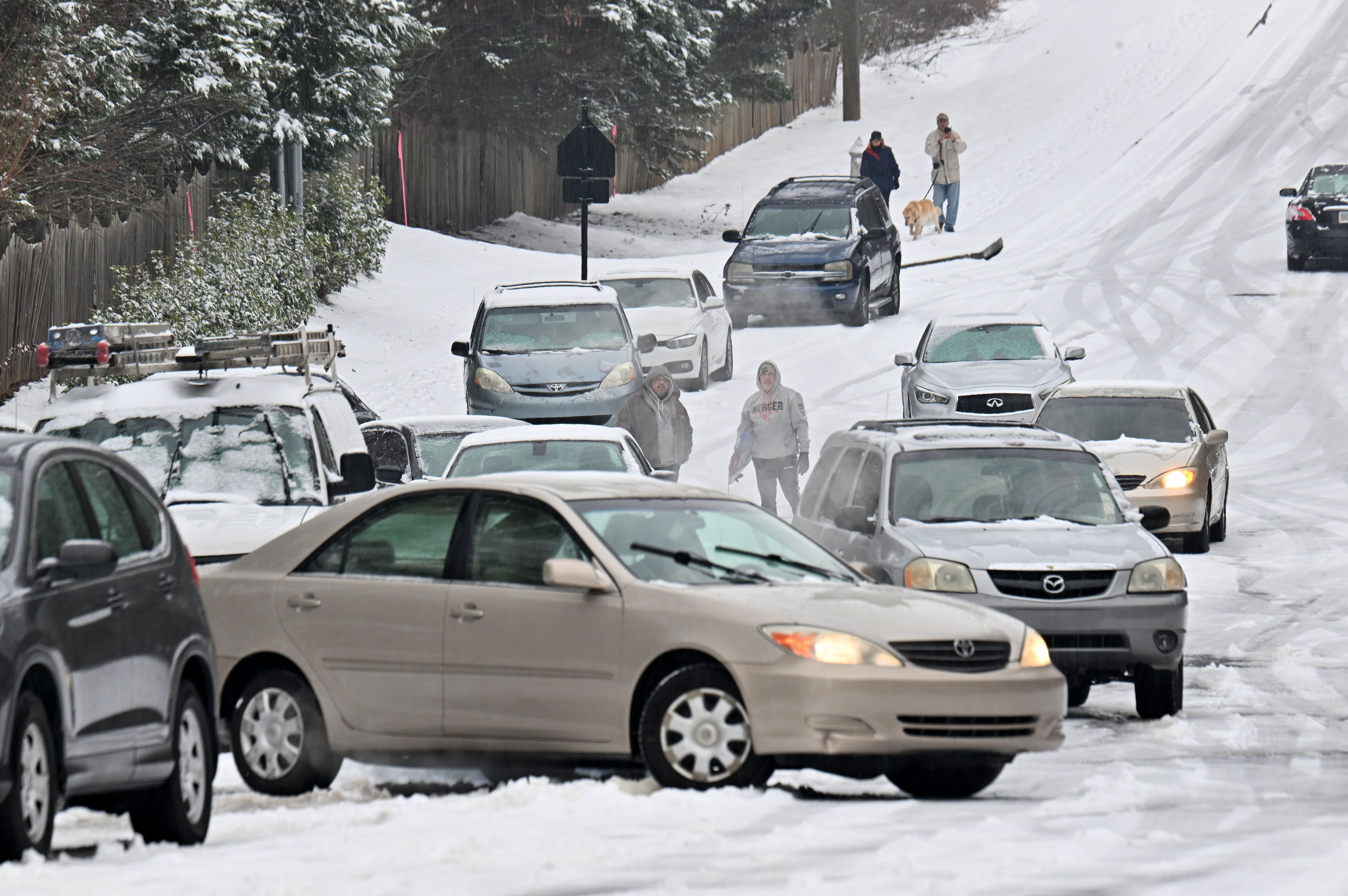Braves’ financial results improve amid on-field struggles

The Braves’ so-far-disappointing season on the field hasn’t carried over to the team’s financial results.
Atlanta Braves Holdings Inc., the publicly traded company that includes the baseball team and mixed-use development The Battery Atlanta, disclosed Thursday that its revenue and profit increased for the April-through-June quarter.
Braves Holdings said it generated revenue of $282.9 million in the quarter, up 5% from $270.1 million in the same three-month period last year, and posted a quarterly operating profit before depreciation and amortization of $45.75 million, up 9% from $41.9 million in the same period last year.
The improvements came despite having three fewer home games (40) in the second quarter of this year than last year (43).
Braves Holdings was split off from Liberty Media as a separate public company last year, although much overlap remains between the two entities. The Braves are one of the few pro sports franchises with publicly traded stock, requiring the disclosure of financial results that other teams keep secret.
“Fan demand remains strong,” Greg Maffei, CEO of Atlanta Braves Holdings and Liberty Media, said on a conference call with investment analysts Thursday. He said spending per attendee at Braves home games on tickets and concessions is up year-over-year.
The Braves’ latest financial results cover a quarter in which the team had an impressive start on the field (an 18-6 record through April 26), but then regressed sharply amid injuries and under-performance by key players. Since April 27, the Braves have a 42-47 record (entering play Thursday). Nevertheless, Braves Holdings said the team’s second-quarter revenue “grew primarily due to new sponsorship agreements and contractual rate increases on season tickets and existing sponsorship contracts.”
Of the $282.9 million in second-quarter revenue, Braves Holdings attributed $266 million to baseball sources, up 4% from the corresponding quarter last year, and $16.9 million to The Battery Atlanta, up 11%.
The Braves’ revenue from The Battery consists primarily of rental income, while baseball revenue includes ticket sales, concessions, advertising, sponsorships, suites, premium seat fees, broadcasting rights fees, retail merchandise sales, licensing, etc.
The Braves said they brought in $71 million in local and national broadcasting revenue during the April-through-June quarter, up 3% from the second quarter of 2023, despite the dispute that kept their Bally Sports South and Southeast telecasts off the Comcast/Xfinity cable system for three months until Aug. 1.
“We’re thankful that the carriage dispute is resolved,” Braves CEO Derek Schiller said on Thursday’s call with investors. “What I can tell you is, there’s really no material impact on our business (from the Comcast-Bally Sports dispute). We’ve certainly seen a reduction during that period of time in (TV) ratings that is somewhat commensurate with the reduction in the carriage.
“Now that that’s back, we’d expect those ratings to also go up,” Schiller said. “We’re glad that it’s done and glad that they got that all resolved.”
On the expenses side, the Braves said baseball operating costs grew in the second quarter “due to higher player salaries, increases under the MLB’s revenue sharing plan and increased minor league team and player expenses.” But “revenue growth more than offset increased baseball operating costs,” the company said.
After deductions for depreciation and amortization ($17.1 million) and stock-based compensation ($3.7 million), the Braves showed an operating profit of about $25 million for the quarter, up 28% from $19.5 million in the same period last year.
The latest financial disclosures also show that Braves Holdings continues to carry considerable debt: $600 million as of June 30, up from $580 million on March 31.
The Braves’ annual revenue has increased significantly in recent years, from $476 million in 2019 to $641 million in 2023. That has fueled a sharp increase in player payroll during that time. The Braves currently rank sixth among MLB teams in 2024 payroll and fourth in luxury-tax payroll, the latter based on average annual value of contracts, according to sports financial database Spotrac.
The Braves’ second-quarter financial report came nine days after an MLB trading deadline at which the team added about $4 million to its 2024 payroll and added at least $28 million in contractual obligations for the 2025 and 2026 seasons by acquiring outfielder Jorge Soler and relief pitcher Luke Jackson from San Francisco for reliever Tyler Matzek and infield prospect Sabin Ceballos.
The approximately $4 million addition to this year’s payroll represents the salaries due Soler and Jackson for the final two months of the regular season, minus that due Matzek. More significantly from a financial perspective, the trade also made the Braves responsible for Soler’s $13 million salaries in each of the next two seasons and for a $2 million buyout of Jackson’s 2025 contract if his $7 million club option isn’t exercised.
Spending extends beyond players. Brian Wendling, chief accounting officer and principal financial officer of Atlanta Braves Holdings and Liberty Media, noted Thursday that the Braves spent about $15 million on Truist Park capital improvement projects completed before this season. The team expects to spend another $20 million on additional projects, “primarily related to new seating options,” before the 2025 season, he said.
“These are all high-returning projects that will generate incremental revenue for the Braves in the 2025 season,” Wendling said.



